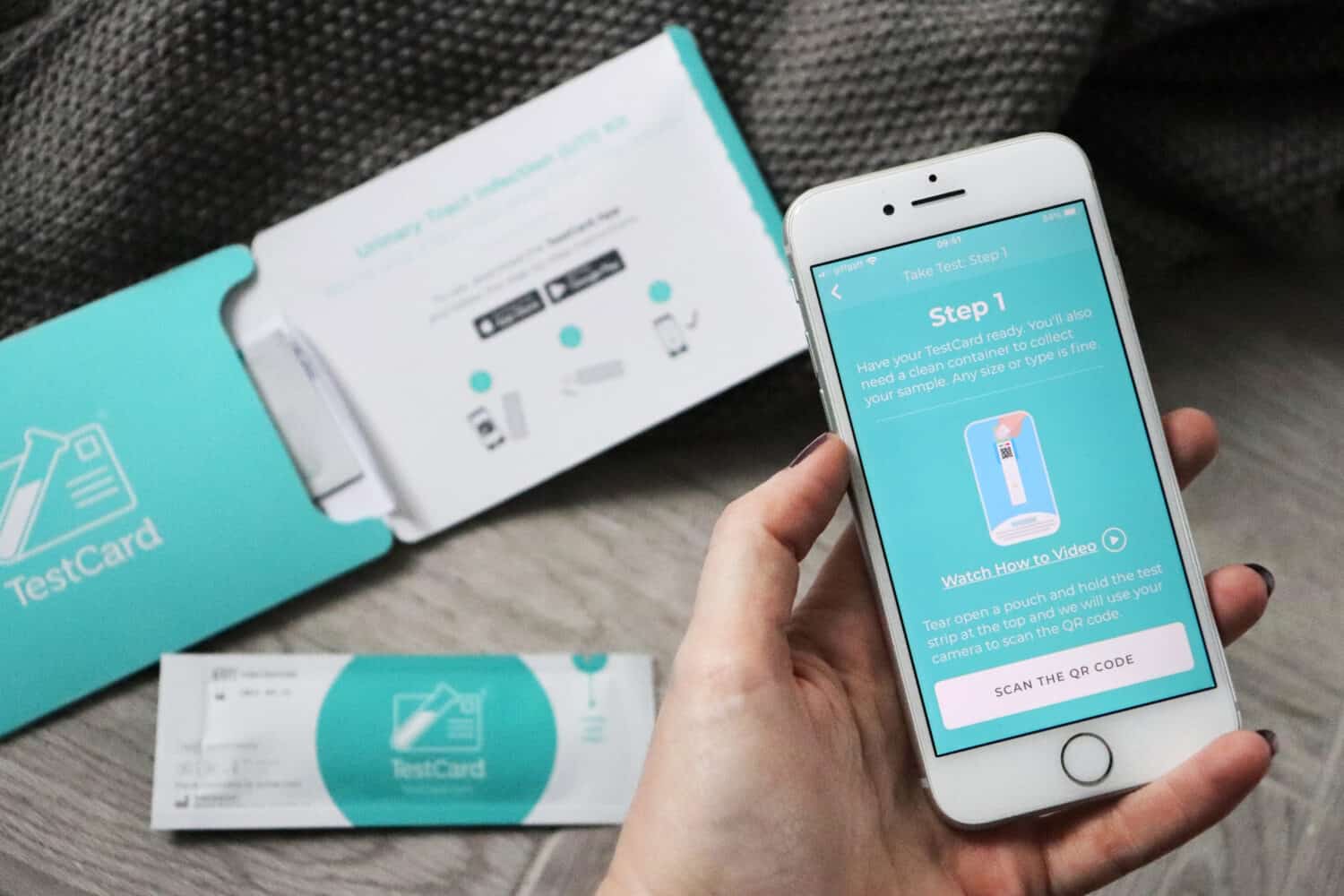
Michael Joe Cini
14th April 2023
TestCard’s Diagnostics App Validated for NHS After Successful Roll-out
The process of testing, recording, and reporting patient data for clinical diagnosis has improved significantly. Still, it is not responsive enough for fast-spreading diseases such as COVID-19. Tests often take only a few minutes to implement, but results sometimes take several hours to a few days to appear. Also, reporting the results to the clinic often requires extra logistics to ensure patient results are appropriately matched to their records.
TestCard, a UK med-tech company, is looking to revolutionize patient testing and recording with an all-in-one, smartphone-based solution. Recently, their solution, known as the ClearScreen app, received validation to be made available to hospitals across the NHS with a successful pilot study at Guy’s and St. Thomas’ NHS Foundation Trust.
TestCard: Making Non-Invasive Testing Accessible and Reliable with Digital Solutions
The story of TestCard’s success was several years in the making, though. Before TestCard’s diagnostic solution, most testing was laboratory-based, and tests conducted were recorded on non-digital media. This meant clinicians would typically not receive the results of patient tests until after 4 hours or a full day, even if the test itself was non-invasive and took little time to complete. Realizing the potential of coupling rapid tests with digital solutions for recording and sharing patient results with physicians, co-founders Luke Heron and Dr Andrew Botham started TestCard in May 2017 to integrate smartphone technology into clinical diagnostics and test reporting.
Headquartered in Scarborough, North Yorkshire, TestCard is a diagnostics innovation company seeking to improve the accessibility and capability of non-invasive testing methods in the healthcare system. Access to non-invasive testing is still limited. Where they are available, they are often restricted to a few routine tests. TestCard seeks to increase the diagnostic capacity of non-invasive testing while introducing digital solutions to maximize the benefits. Non-invasive testing methods are typically fast and require little lab work and expertise, meaning such tests can be done more efficiently and accessibly. TestCard’s work is centred around a multi-pronged philosophy that proposes that medical testing and testing kits should be accessible to all, fast, accurate, and affordable.
Compared with fixed terminal scanners and other devices currently used in hospitals and clinics worldwide, TestCard’s solutions show significant advancements in reliability and speed of results. A 2020 pilot study compared TestCard’s UTI test kit with a Roche Urisys 1100 fixed terminal scanner, pitting test results across ten different parameters, including pH, nitrites, leukocytes, and specific gravity. In all assessed parameters, the study found an equivalent or improved measurement accuracy as the fixed scanner. One of the crucial parameters in this test was the amount of lighting applied while carrying out the test. Nine different lighting conditions were investigated, with maximum lighting >30,000 lux of direct sunlight. Despite using nine different degrees of illumination, the mean response did not vary more than 15%.
TestCard’s edge is delivering immediate and accurate results to healthcare providers by rapidly reading and relaying results. TestCard’s digital solution can effectively read test kits’ results and produce a more precise inference than a visual reading. It can then digitally connect and integrate with a hospital’s EPR (electronic patient record) system to deliver test results to physicians. TestCard combines non-invasive, postcard-sized urine test kits with a mobile phone app that turns smartphone cameras into clinical-grade scanners. Rapid testing eases the pressure on NHS hospitals, as quick test results can be acted upon immediately, mitigating risk for everyone.
Prior tests carried out using TestCard’s diagnostic solutions have given positive results. In response to the monkeypox epidemic of 2022, TestCard partnered with SureScreen Diagnostics, a UK-based life science firm, to trial a new lateral flow test that could detect a monkeypox infection in ten minutes from a drop of finger-prick blood. SureScreen, TestCard’s partner in developing the new monkeypox rapid testing kit, had been the first to create approved LFTs (lateral flow tests) for COVID-19 antigens. David Campbell, a director at SureScreen Diagnostics, commented that the work “demonstrates yet another example of how lateral flow technology can play such a critical part in healthcare across the world outside of COVID-19, and it will help us to improve healthcare in the future.”
The ClearScreen App: The Game-Changer in Rapid COVID-19 and Flu Testing
Dr Rahul Batra, the Technology and Innovations Lead at Guy’s and St. Thomas’ NHS Foundation Trust, had further harped on the importance of the rapid testing and diagnostics tool, saying, “The COVID-19 pandemic has shown us that emerging infectious diseases require rapid diagnostics development, effective surveillance and health information systems capable of using point of care diagnostic data for rapid and effective interventions.” TestCard’s potential to revolutionize testing in healthcare has also been recognized by the industry, with the company raising over $19 million in funding to date from investors such as West Hill Capital.
TestCard’s latest validation is of the ClearScreen app, a tool that allows smartphone cameras to read test kits, after an extensive pilot at Guy’s and St. Thomas’ NHS Foundation Trust. In the 12-month pilot, clinicians paired the ClearScreen app with a dual lateral flow test kit that checked for COVID-19 and Influenza (A & B). The dual COVID and Flu test kit was developed by SureScreen Diagnostics and is the first to pass the UK Health Security Agency’s Coronavirus Test Device Approvals (CTDA) process. Participants in the pilot study were patients with respiratory problems visiting St. Thomas’ A&E. Within minutes of arrival, the individuals were swabbed and tested, and their test results were read and relayed to the hospital’s EPR system within seconds.
Guy’s and St. Thomas’ saved significant costs and time during the winter trials by using the rapid dual test instead of PCR. Dr. Sam Douthwaite, a consultant in the virology department and service lead for Infectious Diseases at Guy’s and St Thomas’, commented on the gap that this new form of testing effectively bridged. In his words, “When there is a busy A&E department where a lot of people have some form of winter cough and cold, we needed to find patients who had flu or COVID and get them rapidly into a side room so we could prevent infection and get them started on their treatment.” He added, “Traditionally, lab testing took up to 24 hours, so a patient must remain in isolation until then. But with the app and the dual flu and COVID test, we can carry out the test and get results in 10 minutes, and that’s proved to be a real game-changer.” Following the trial’s success at Guy’s and St. Thomas’ NHS Foundation Trust, it is hoped that the ClearScreen app would be deployed more widely.
Be part of the Med-Tech World Summit this October
Happening in Malta on October 19-20, the Med-Tech World Summit is where we’ll be uniting top experts in healthcare and technology to shape the future of medicine. Don’t miss this thrilling chance to join us later this year.




